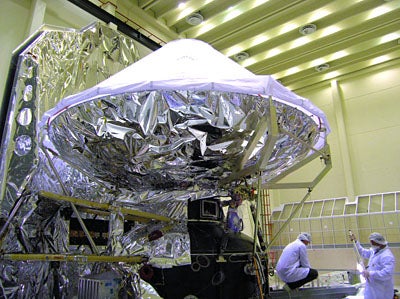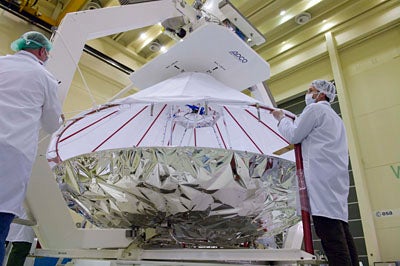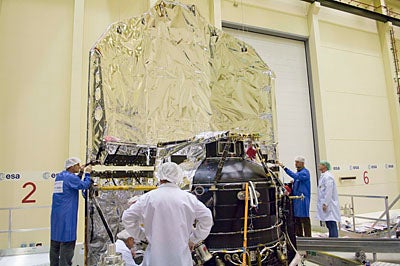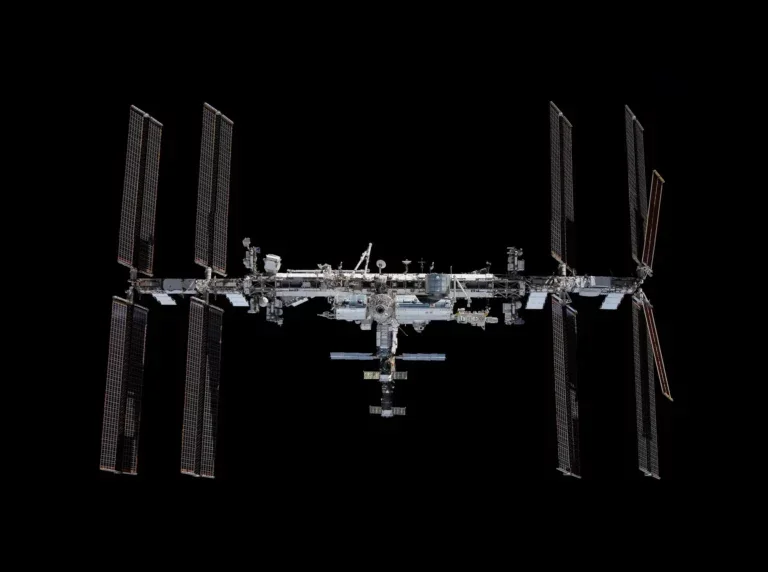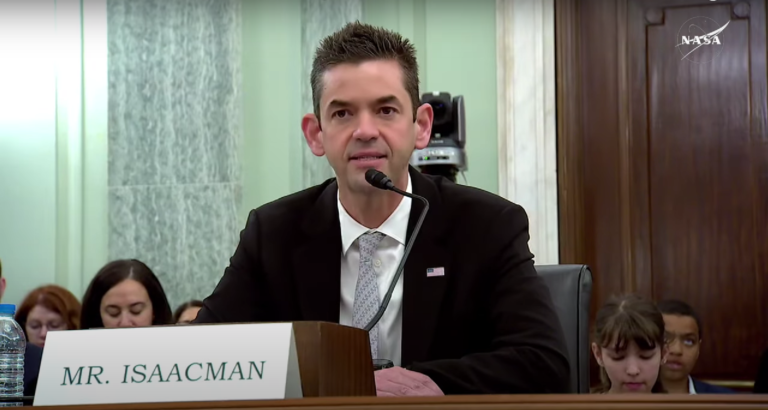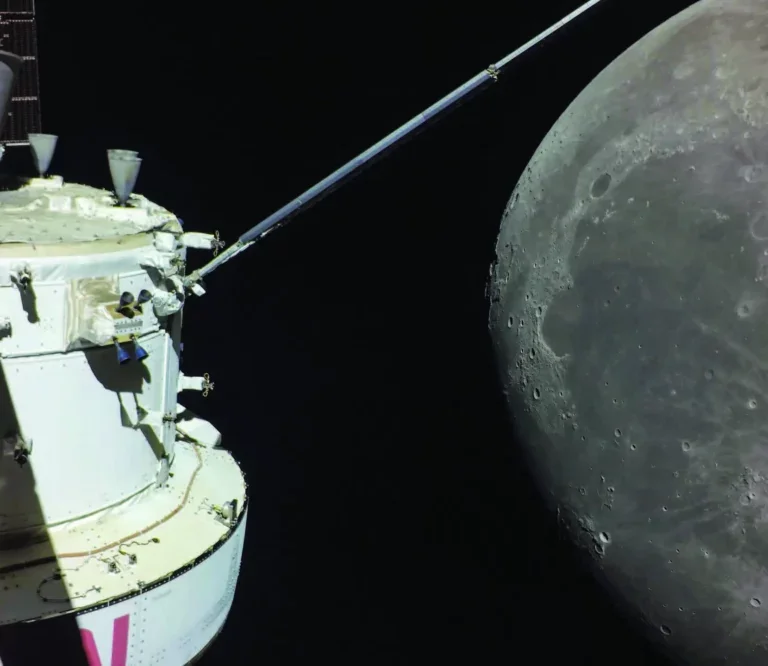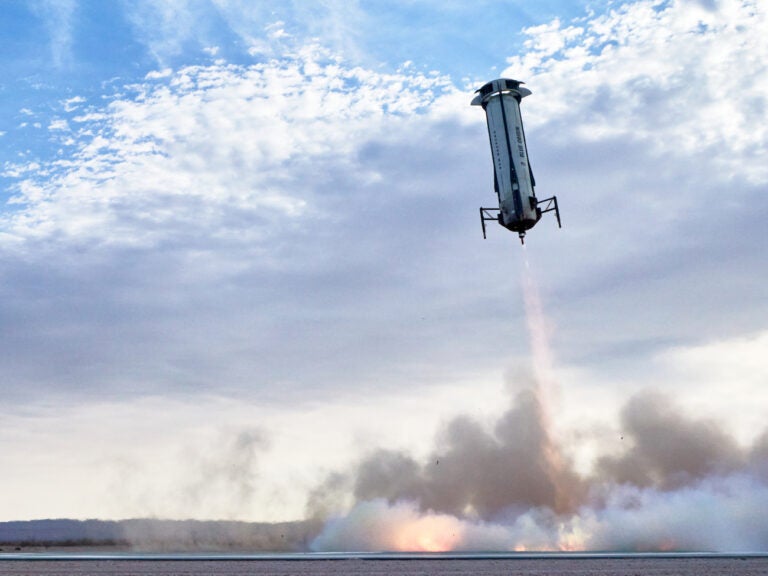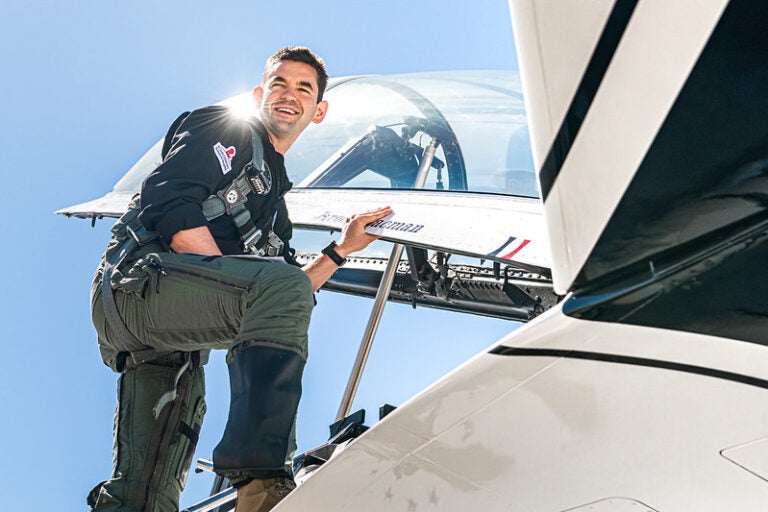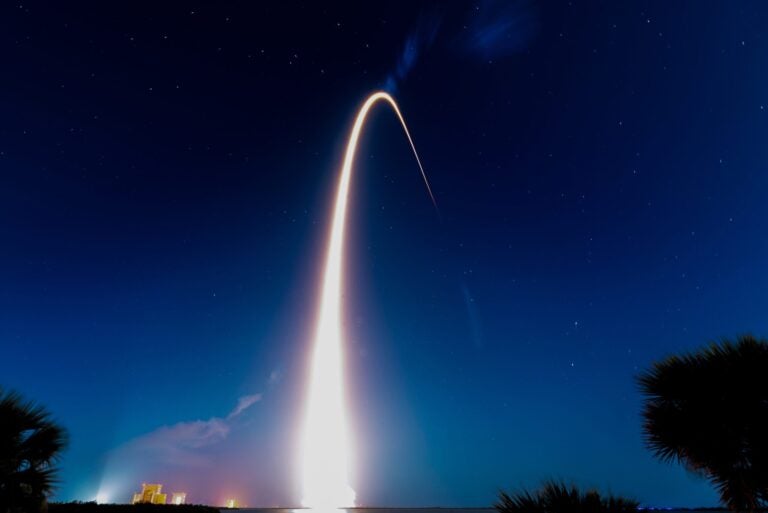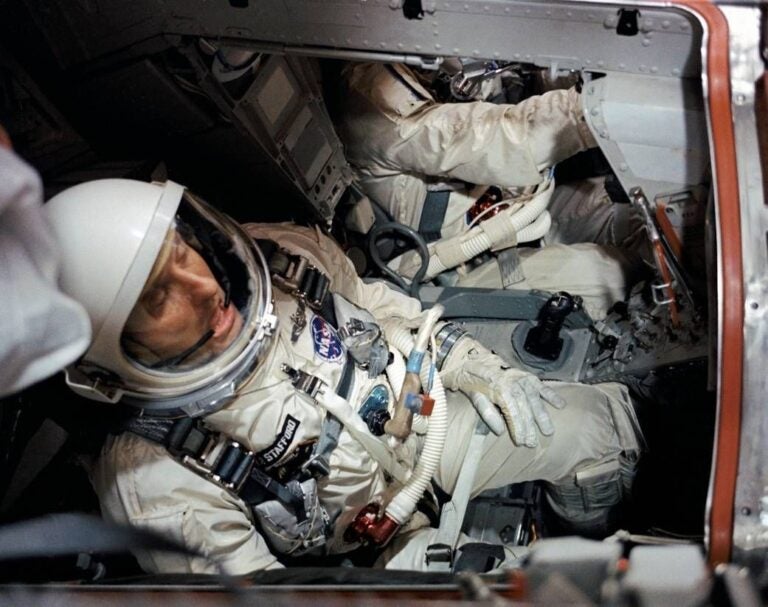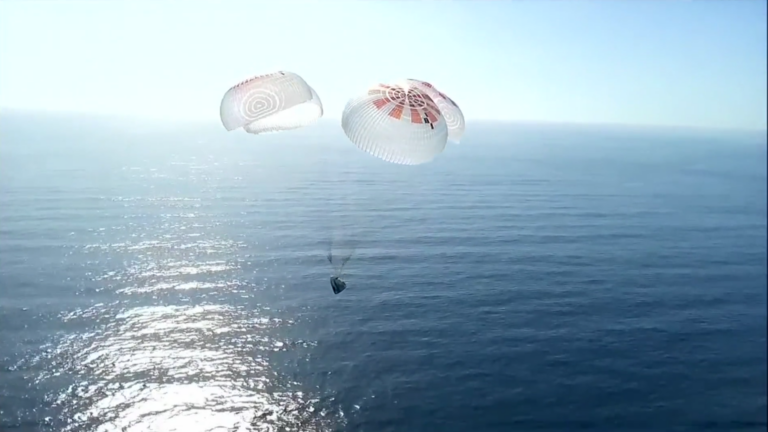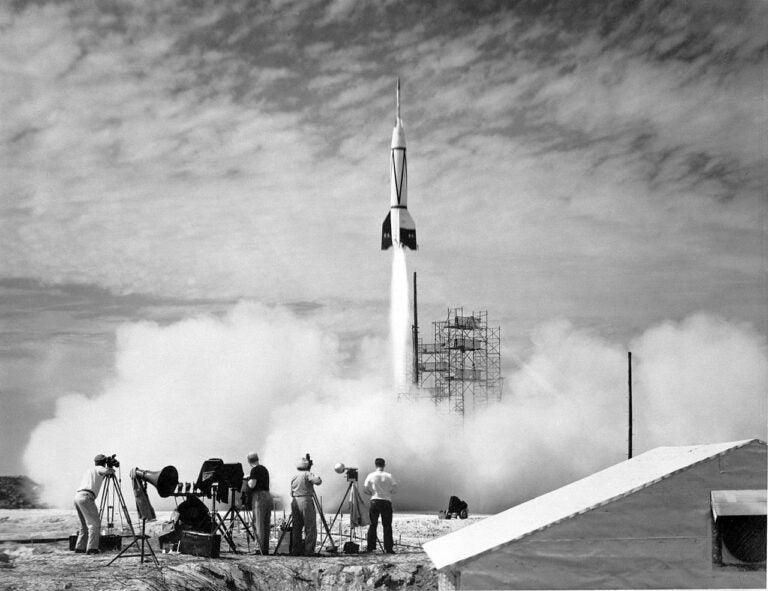The mirror of the Herschel telescope has now been assembled with the payload and service module, completing the spacecraft structure — an important milestone in the days following through to launch.
The sunshield and solar arrays were assembled with the cryostat and service module on April 11. The telescope was assembled on April 16. The spacecraft will be subjected to several mechanical tests over the next few weeks.
The fully-assembled telescope, which includes the primary mirror, the secondary mirror and its support structure, is a feathery 320 kilograms; remarkably low for such a sturdy structure capable of withstanding high launch loads and functioning precisely in the harsh environment of space.
Herschel will make it possible to observe and study relatively cool objects everywhere in the universe, from our own back yard to distant galaxies, teaching us much more about the birth and evolution of stars and galaxies.

